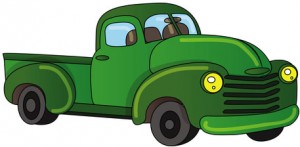Hyphens, Part II: Pick Up (Not Pick-Up) More Tips!
 We (Edith Hope Fine and Judith Josephson) are the Grammar Patrol. Both of us taught for years and are now writers, with thirty plus books between us, including our two popular grammar guides, Nitty-Gritty Grammar and More Nitty-Gritty Grammar. For close to twenty years, we taught writing and grammar basics and now we blog about grammar for writers.
We (Edith Hope Fine and Judith Josephson) are the Grammar Patrol. Both of us taught for years and are now writers, with thirty plus books between us, including our two popular grammar guides, Nitty-Gritty Grammar and More Nitty-Gritty Grammar. For close to twenty years, we taught writing and grammar basics and now we blog about grammar for writers.
In October, we covered some hyphen basics. This month, more hyphen tips.
More Hyphen Uses

• With the names of compound numbers from 21–99 and written fractions:
thirty-three eighty-seventh five-eighths
six and two-thirds fifty-four and three-fourths
• With numbers showing age or time:
ten-year-old spelling champ 18- to 22-year-old undergraduates
two- to three-year period a 47-year marriage
• with highways and to designate aircraft:
I-805 F-16
Hyphens with Verbs, Nouns, Adjectives
• If you’re thinking “action,” skip the hyphen. Make most compound verbs two words.
Back up your computer documents.
Pick up your room.
• Link the words in compound nouns and adjectives, either as a single word or with a hyphen.
Take this offramp [noun] for the off-road [adjective] rally.
You can borrow my pickup [noun] to haul the manure.
Provide backup [noun] for the back-up [adjective] team.
(While most dictionaries list the noun backup as a single word, a few recognize back-up. Just don’t use the two-word verb “back up” when you mean the noun. Write “The spy called for backup” (or back-up), not “The spy called for back up.”
(You’ll find more on two-word verbs like these, called phrasal verbs, in More Nitty-Gritty Grammar, page 131, including a Calvin and Hobbes cartoon!)
Hyphens—All in the Family
How do you hyphenate words for family relationships?
• Use hyphens for most relationship words:
daughters-in-law great-uncle sister-in-law
(We know you remember how to pluralize compound words like these. You wouldn’t say “greats-uncle,” so don’t say “sister-in-laws.” Make the important word plural: great-uncles, sisters-in-law.)
• Use two words, no hyphen, with “half”:
half brother half sister
• No hyphen with “grand” or “step.” Make those one word:
grandmother grandfather stepmom
Hyphenating Job Titles
While many job titles are hyphenated (attorney-at-law), editor in chief and commander in chief (or Commander in Chief) are not. With other compound words, don’t be surprised if you find hyphen disagreements from dictionary to dictionary.
What’s a person to do?
Choose one—and be consistent. Note that Americans tend to hyphenate much less than British, Canadians, and Australians. This explains the inconsistencies between English published in America and abroad.
“Well-” Words Before Nouns
Use a hyphen after “well” when the compound appears before the noun it modifies.
well-written satire well-oiled machine well-known person
“Well-” Words with “To Be” Verbs
Drop the hyphen in “well-” adjectives if they follow a “to be” verb.
Praise for Faith Hill’s signing at the Oscars was well earned.
Ask the Grammar Patrol
That’s it from the hyphen department. Your reward? We wish you a yummy chocolate-filled truffle for your hyphen use that is well considered. Remember to post your grammar queries—overheard gaffes, puzzlers, goofy signs . . .
See you next month . . .
Tags: hyphen rules, hyphenation, hyphens, The Grammar Patrol